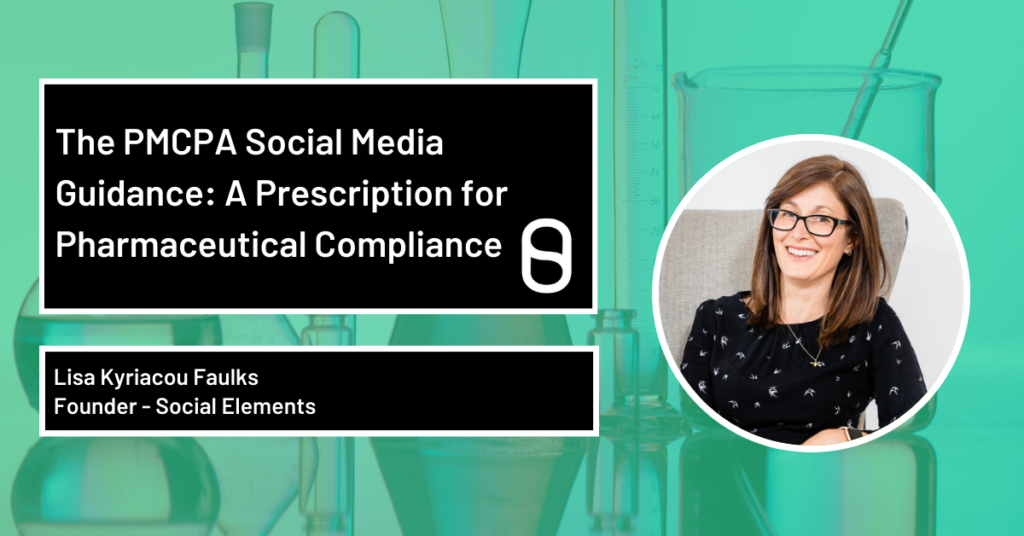The PMCPA Social Media Guidance: A Prescription for Pharmaceutical Compliance
Like it or not, social media is here to stay, and we have all adapted to it as a fundamental part of how we communicate. Social media has become a valuable platform for reaching out to others who share similar medical conditions, joining communities, participating in research, and ultimately, enhancing our knowledge to become better advocates for our health. As we have adapted to these changes, so too has the pharmaceutical industry, recognizing the evolving landscape of social media as a vital channel for communication and information dissemination.
Within the UK, the Association of the British Pharmaceutical Industry (ABPI) Code of Practice governs the promotion of medicines for prescribing to healthcare professionals. Additionally, it sets guidelines for the dissemination of information regarding prescription-only medicines (POMs) to the general public, emphasising the strict prohibition of promoting POMs or investigational medicines to the public.
Pharmaceutical companies acknowledge the influential role of social media in conveying messages and fostering relationships. However, given the stringent regulations governing POMs and pre-marketing authorization promotion, a cautious approach is essential. To navigate these complexities, the Pharmaceutical Marketing Compliance Programme Authority (PMCPA) has developed comprehensive social media guidelines, serving as a valuable resource to help pharmaceutical companies utilise digital channels responsibly.

The Regulatory Landscape:
In the UK, the pharmaceutical industry adheres to a well-established system of self-regulation, complemented by the statutory role of the Medicines and Healthcare products Regulatory Agency (MHRA). The Association of the British Pharmaceutical Industry (ABPI) plays a pivotal role in setting ethical standards through its Code of Practice, which is monitored and enforced by the PMCPA. These guidelines focus on prescription medicines, over-the-counter (OTC) products are governed by the Consumer Code of the Proprietary Association of Great Britain (PAGB).
The Birth of PMCPA's Social Media Guidance:
The PMCPA’s social media guidance was born out of collaborative efforts involving the MHRA, ABPI, pharmaceutical industry representatives, and various stakeholders. Identifying areas where pharmaceutical companies needed clearer direction, this new guidance builds upon the PMCPA’s prior work in this field. It aligns with UK legal requirements, codes of practice, and incorporates insights from international bodies such as the European Federation of Pharmaceutical Industries and Associations (EFPIA), the International Federation of Pharmaceutical Manufacturers & Associations (IFPMA), and the MHRA. The guidance is also informed by PMCPA case precedents.

Key Aspects of PMCPA's Social Media Guidance:
- Transparency: Pharmaceutical companies must be transparent about their communications, activities, and materials on social media, ensuring they are distinguishable as promotional or non-promotional.
- Responsibility: Companies are accountable for all content disseminated on social media, even content shared by third parties or employees. Regular employee training is essential to ensure responsible engagement.
- Pharmacovigilance: Companies should implement policies and procedures on social media to record and report adverse effects related to their medicinal products. They must also signpost users on how to officially report adverse events.

Key Questions for Social Media Marketing:
Before engaging in social media marketing activities, companies should ask themselves several key questions outlined in the guidance:
- Objective of the activity
- Content nature (promotional or non-promotional)
- Relevance to medicines and marketing authorisation
- Target audience
- Interaction and response expectations
- Content review, approval, and maintenance process
- Pharmacovigilance responsibilities
- Consistency with company guidance and legal compliance
Navigating Social Media Features:
Pharmaceutical companies should consider various aspects when using social media:
- Tagging and Mentioning: Companies can mention stakeholders like health professionals, but caution is needed to ensure relevance and respect. Tagging others may have consequences, so care should be taken.
- Hashtags: Selection of appropriate hashtags is crucial to avoid promotional implications. Care should be exercised to prevent unintended promotion.
- Sharing and Resharing: Companies should carefully evaluate content shared or reshared to ensure ABPI Code compliance.
- Corporate News and Professional Profiles: Posting or sharing corporate news is acceptable, provided it doesn’t indirectly promote products. Professional profiles and job advertisements should avoid mentioning POMs.
Disease Awareness and Patient Support:
Social media can be used to raise disease awareness and provide non-promotional health educational information. Patient support content must be clearly identified and suitable for the target audience.

Meetings Advertisements and Product Milestones:
Pharmaceutical companies can utilise social media for advertising meetings and highlighting product milestones. These activities must be conducted transparently and within the confines of the ABPI Code.
In Conclusion:
The PMCPA’s social media guidance is a valuable resource for pharmaceutical companies aiming to harness the potential of social media while ensuring compliance with strict regulations.
To delve deeper into the intricacies of the guidelines and their practical implementation, schedule a consultation session with Social Elements. We’ll provide tailored advice on leveraging the PMCPA’s social media guidelines to their fullest extent for your business. Our experts will delve into practical strategies and insights to help you navigate and implement these guidelines effectively, ensuring compliance while maximising the impact of your social media efforts within the pharmaceutical industry.


